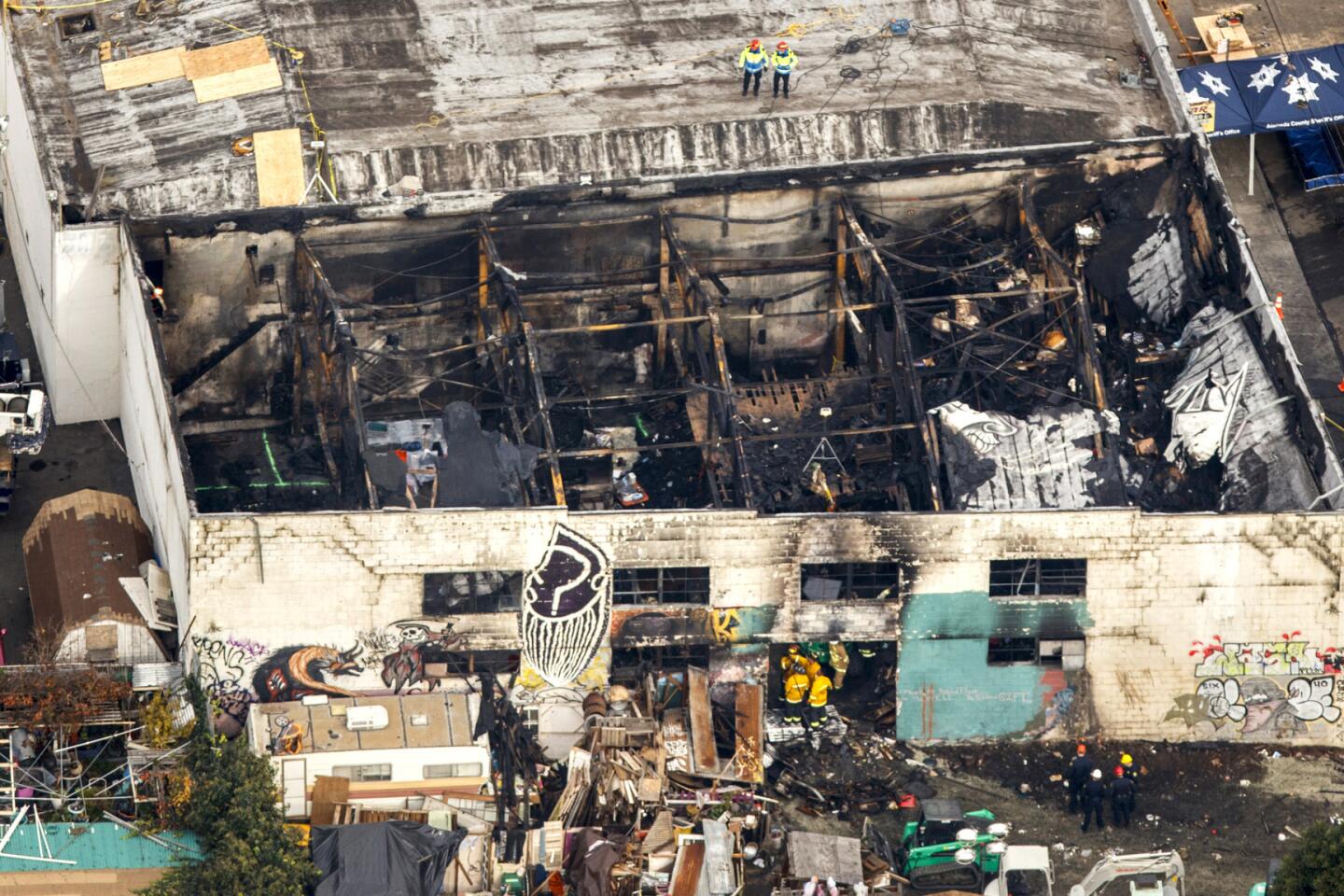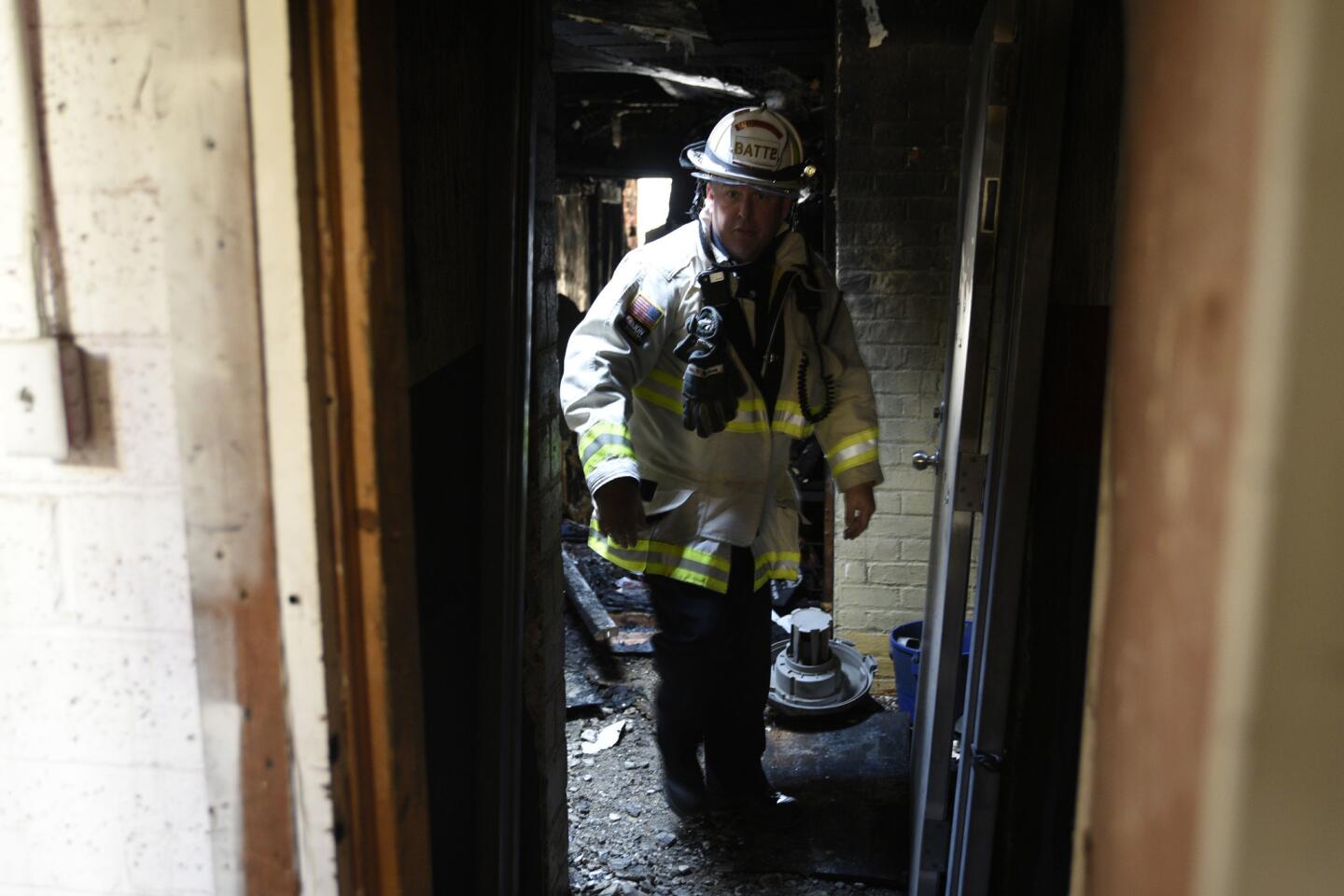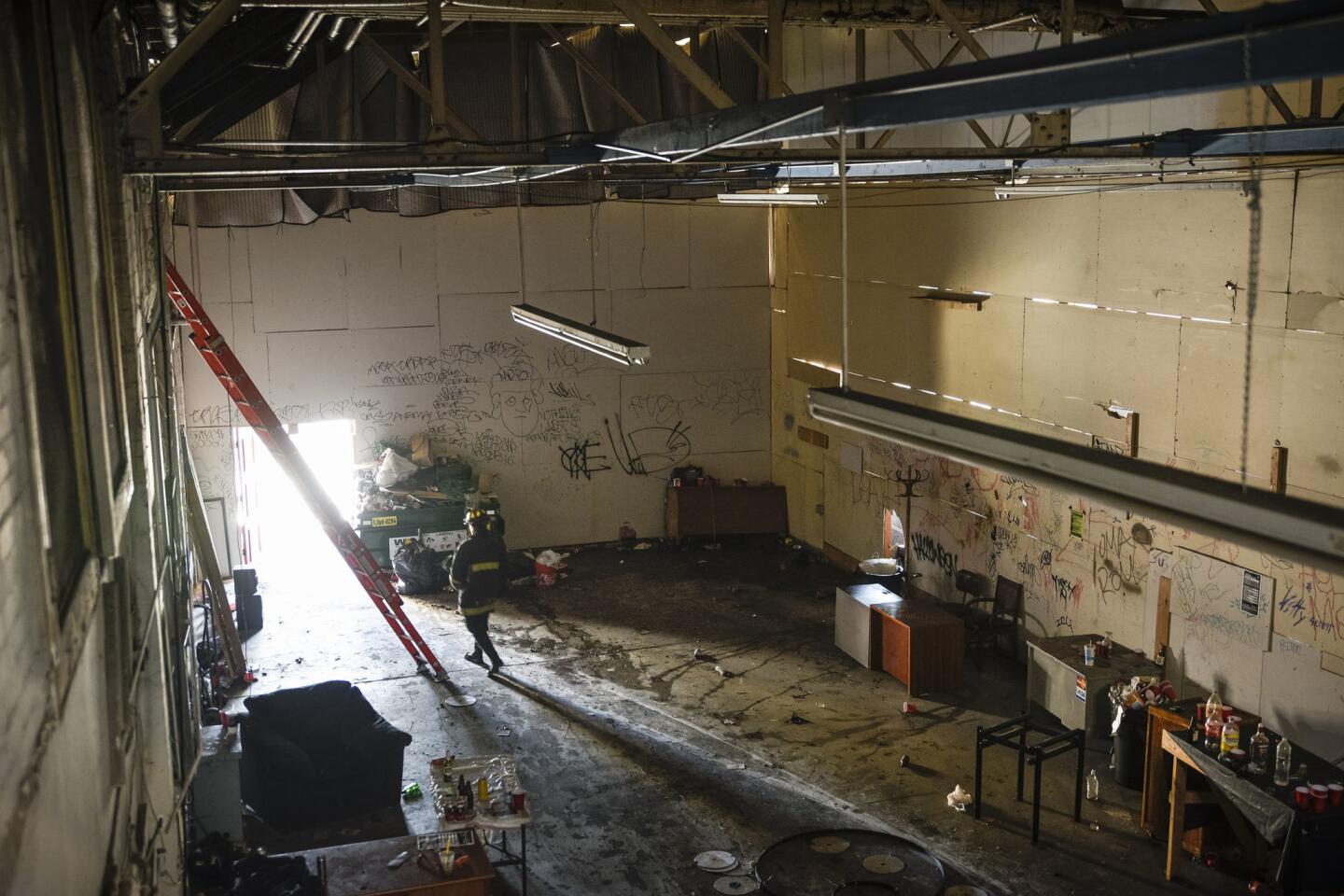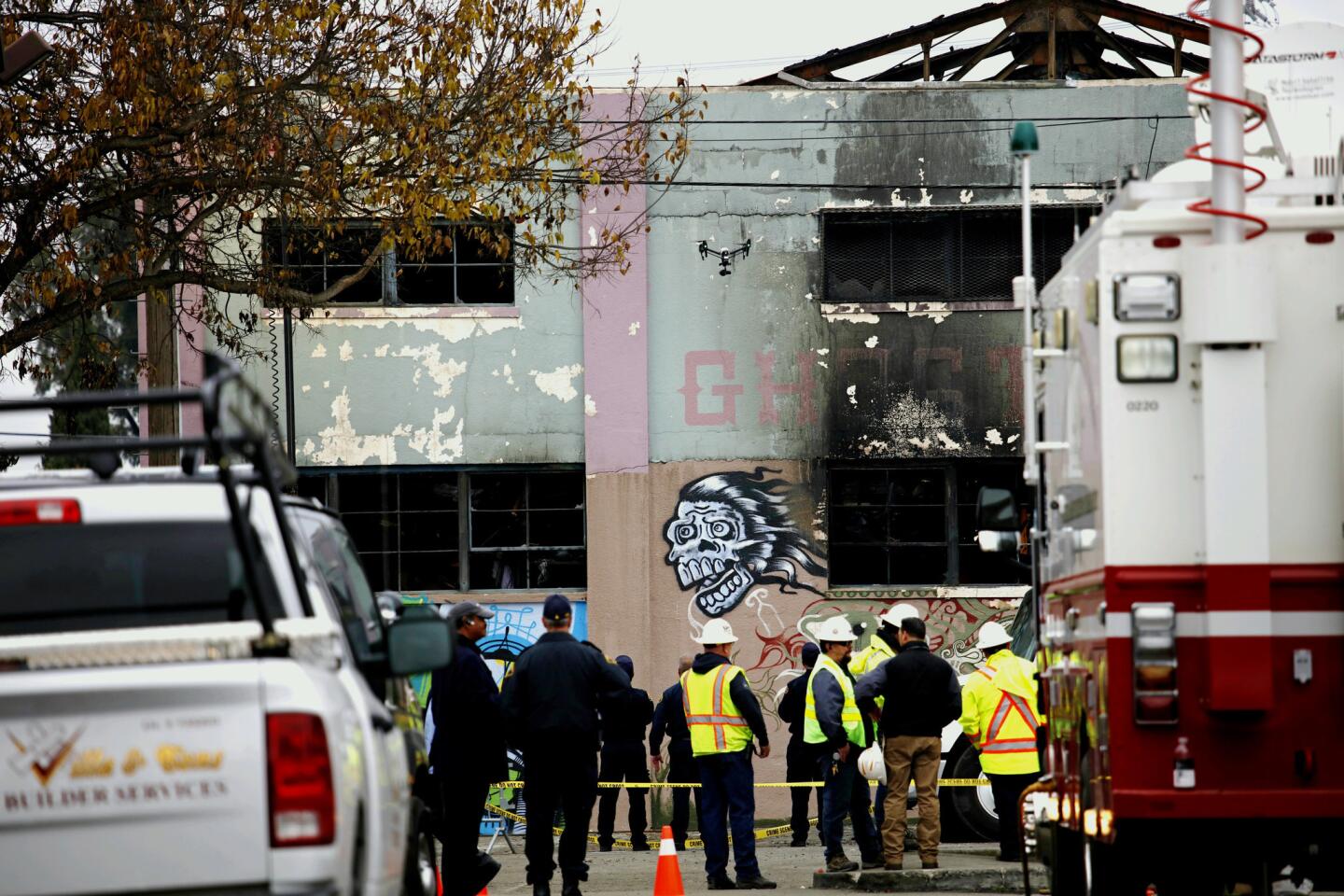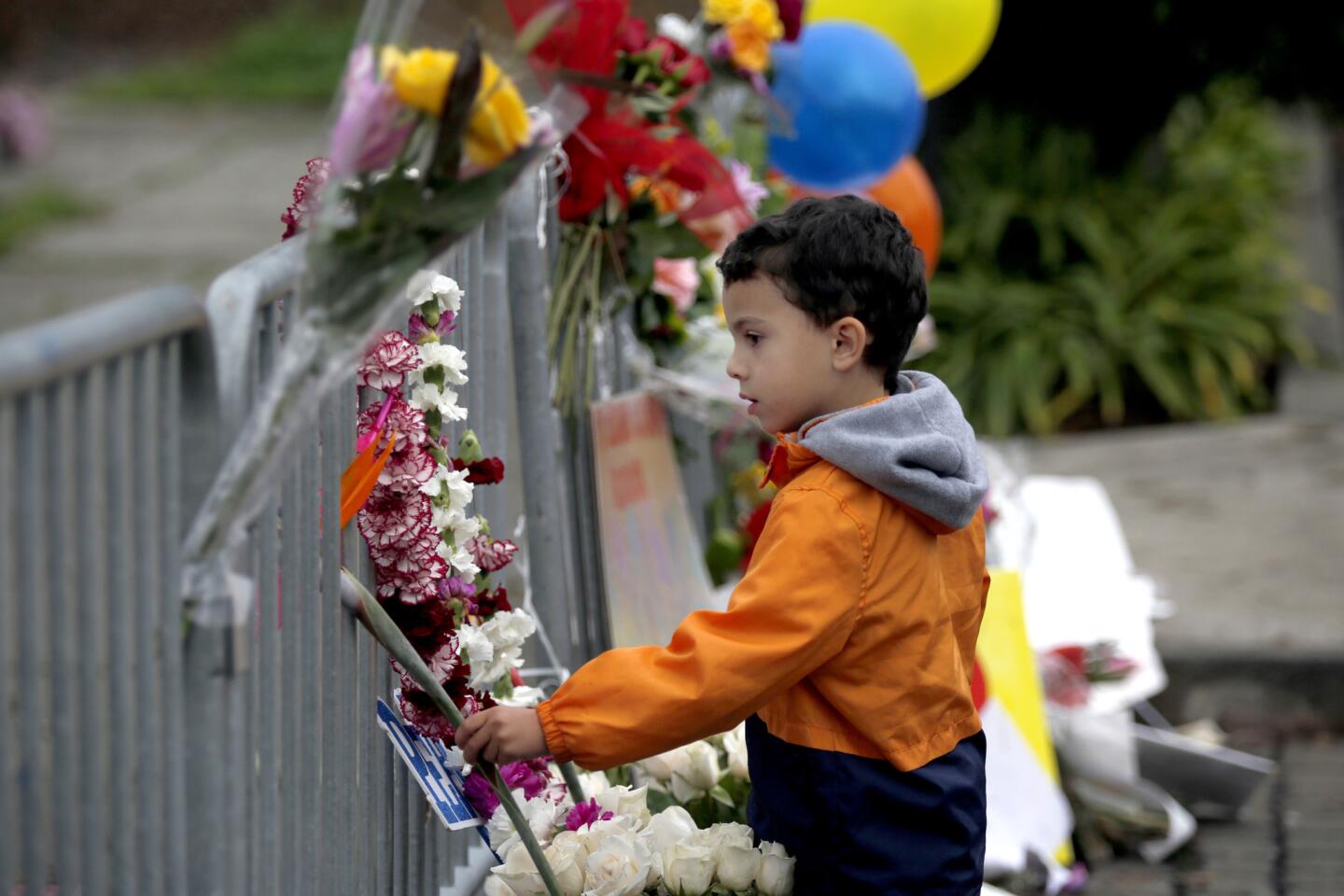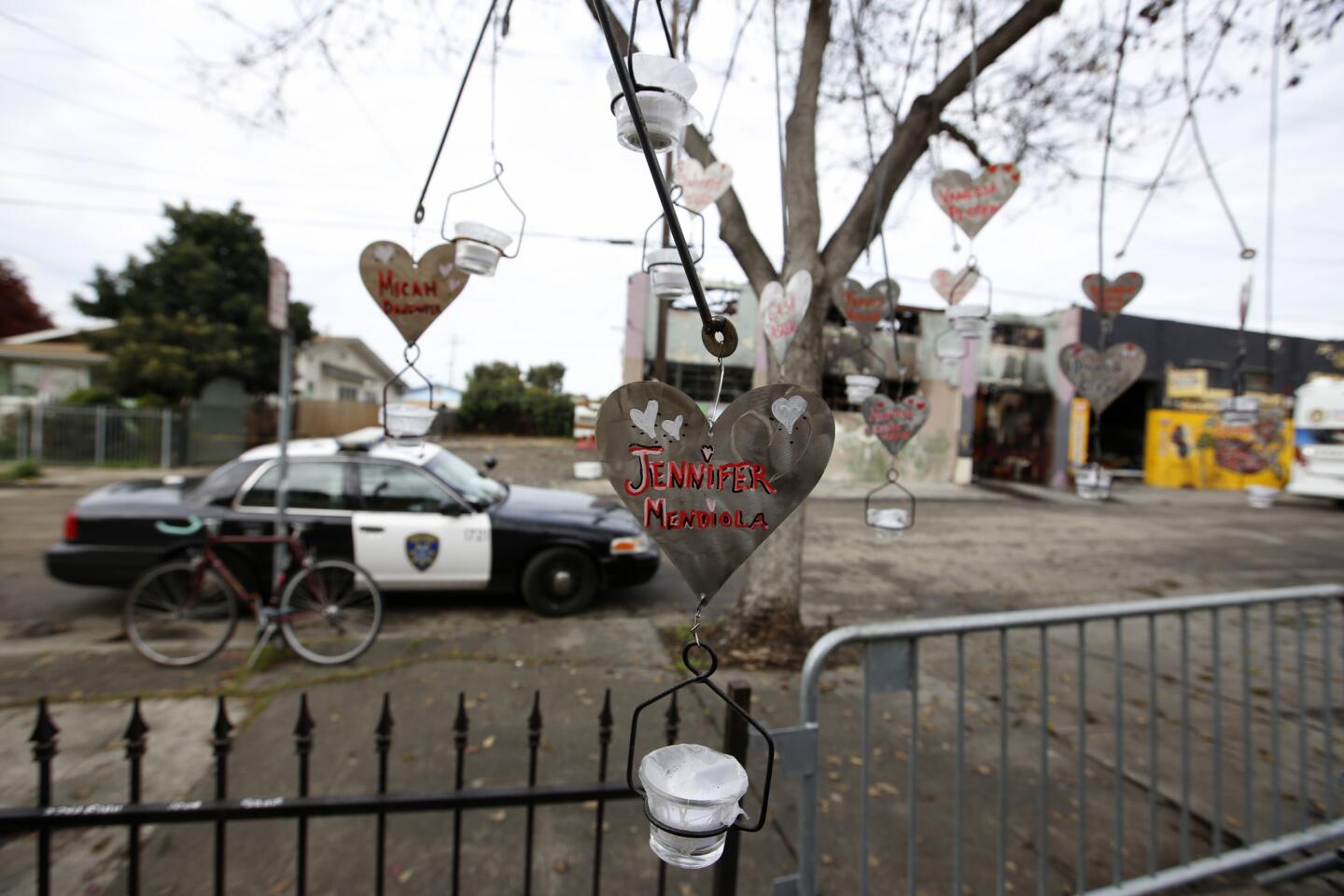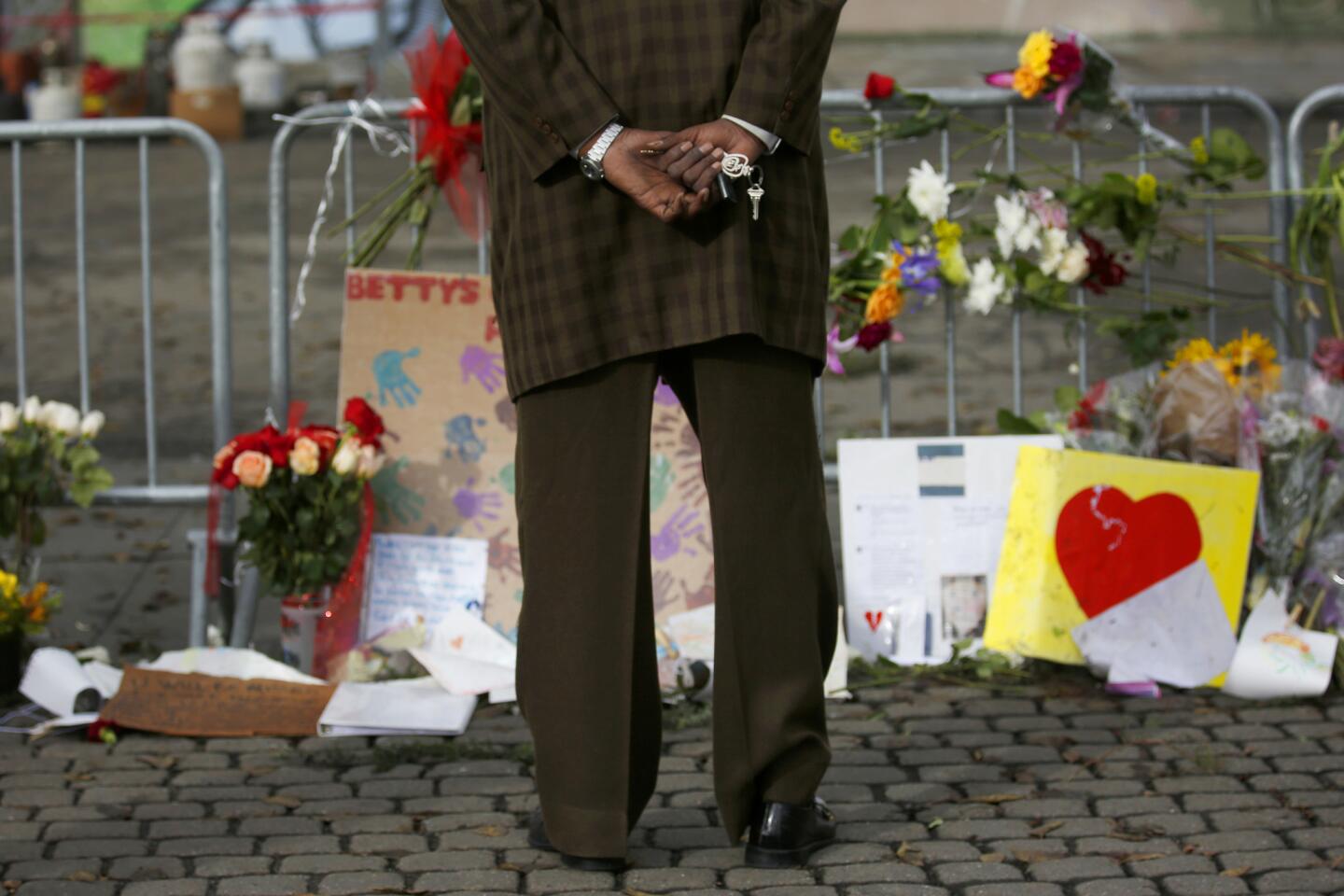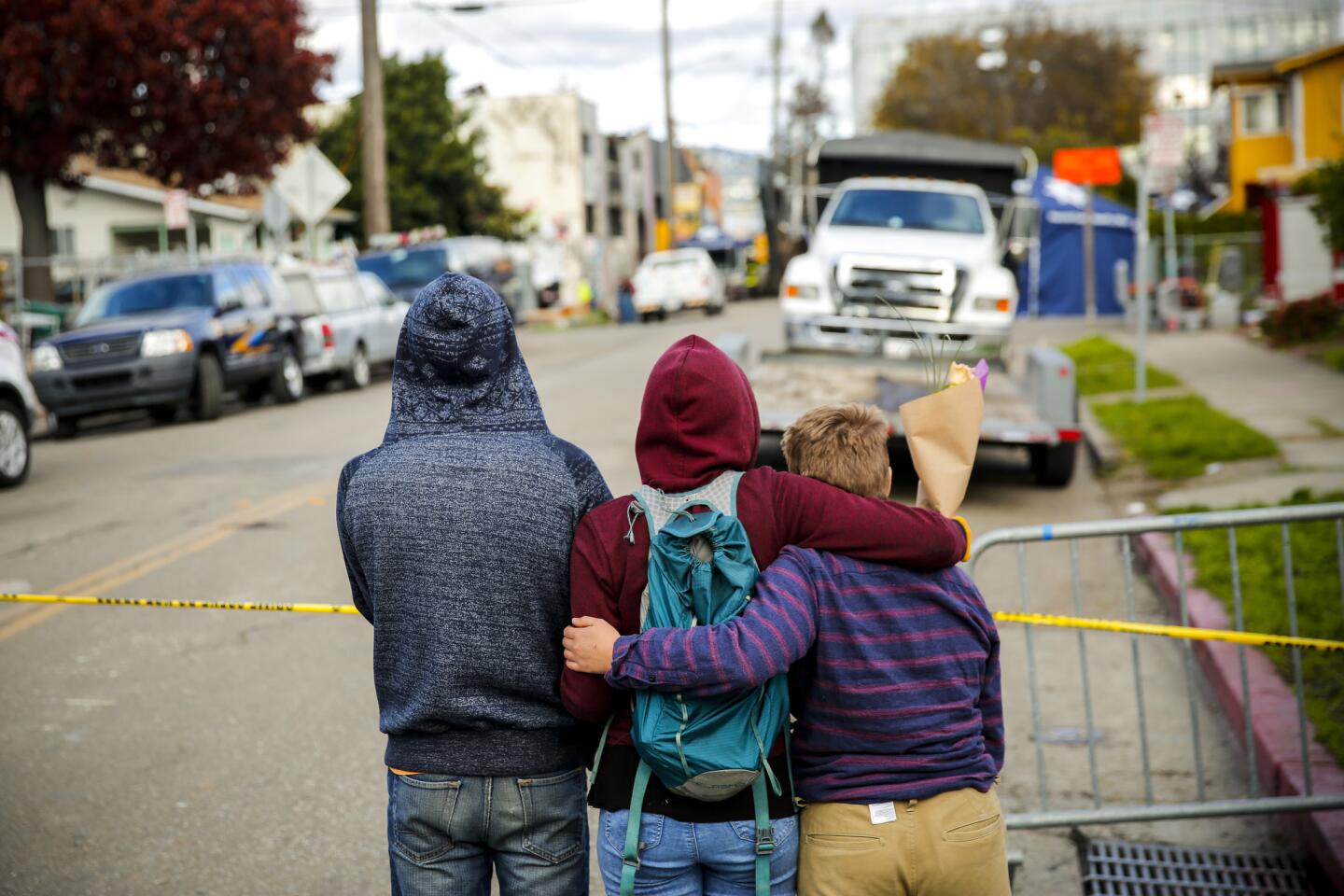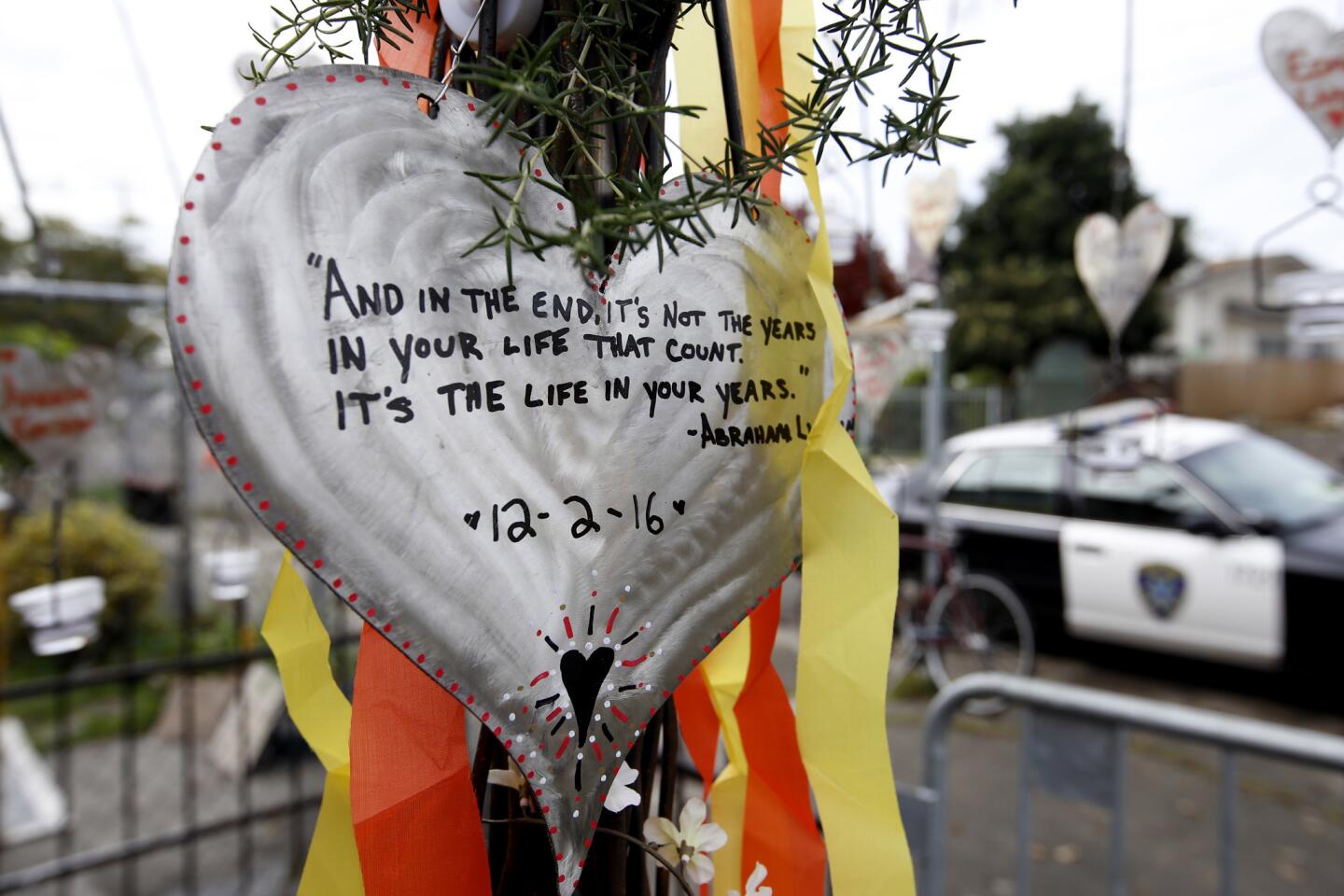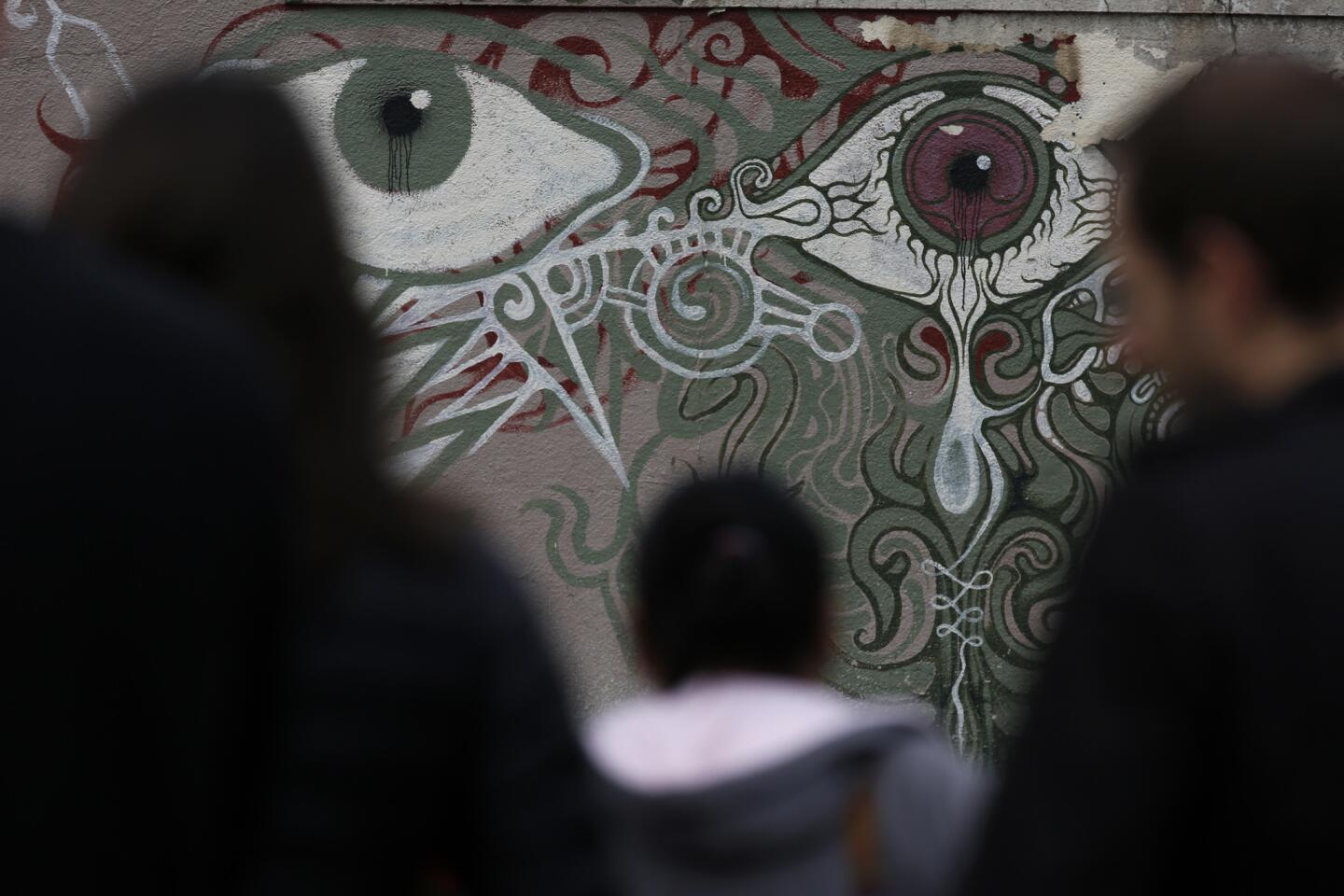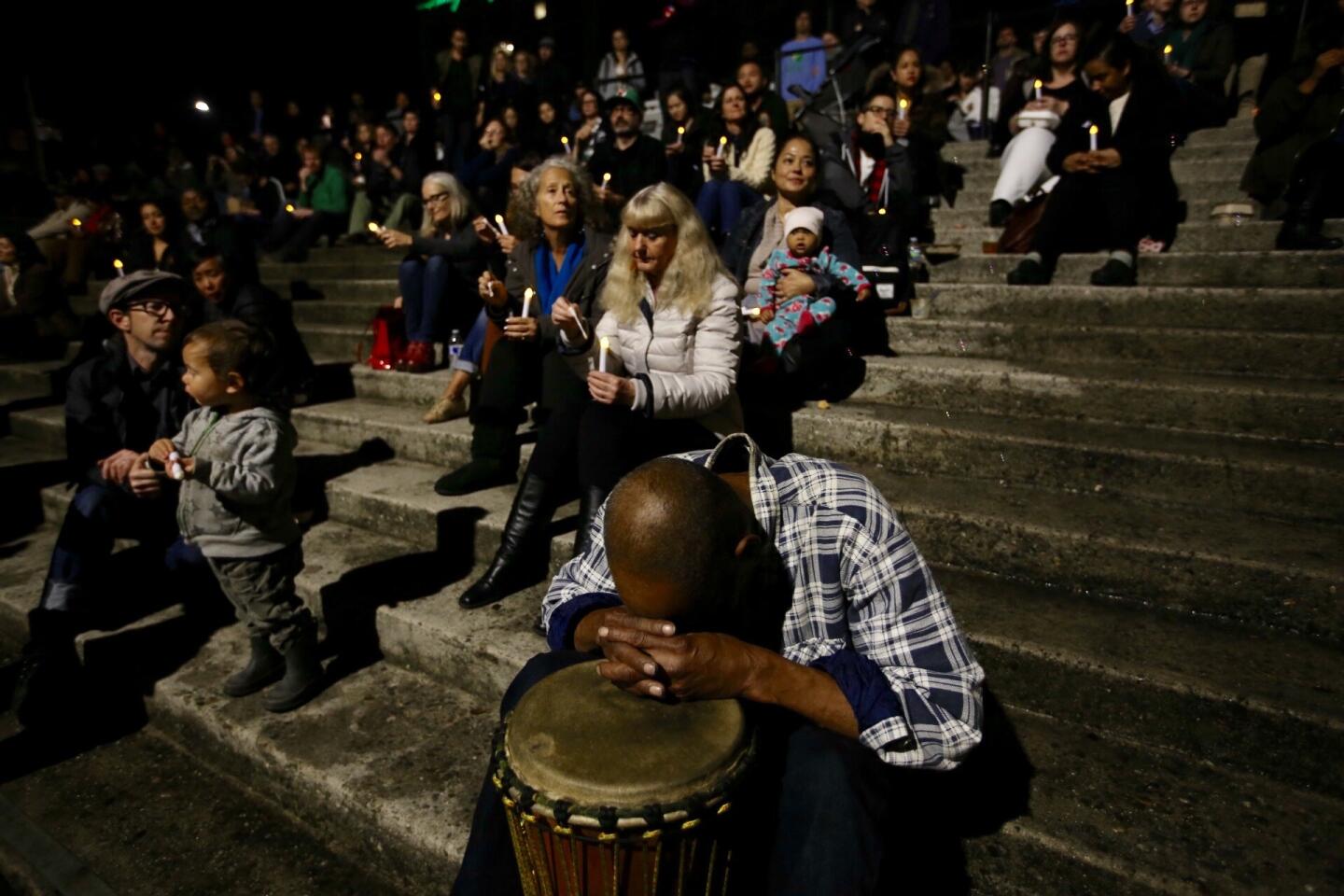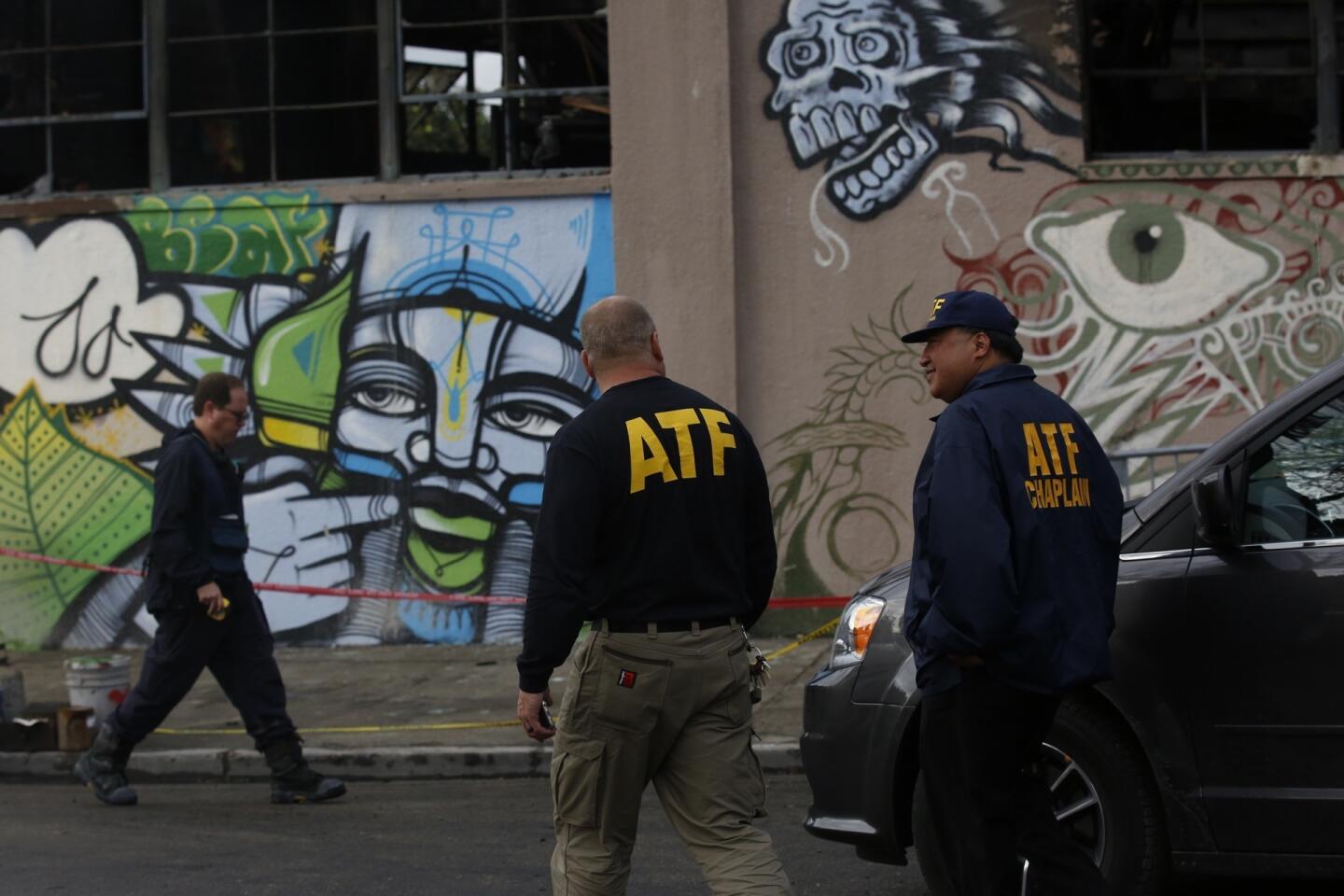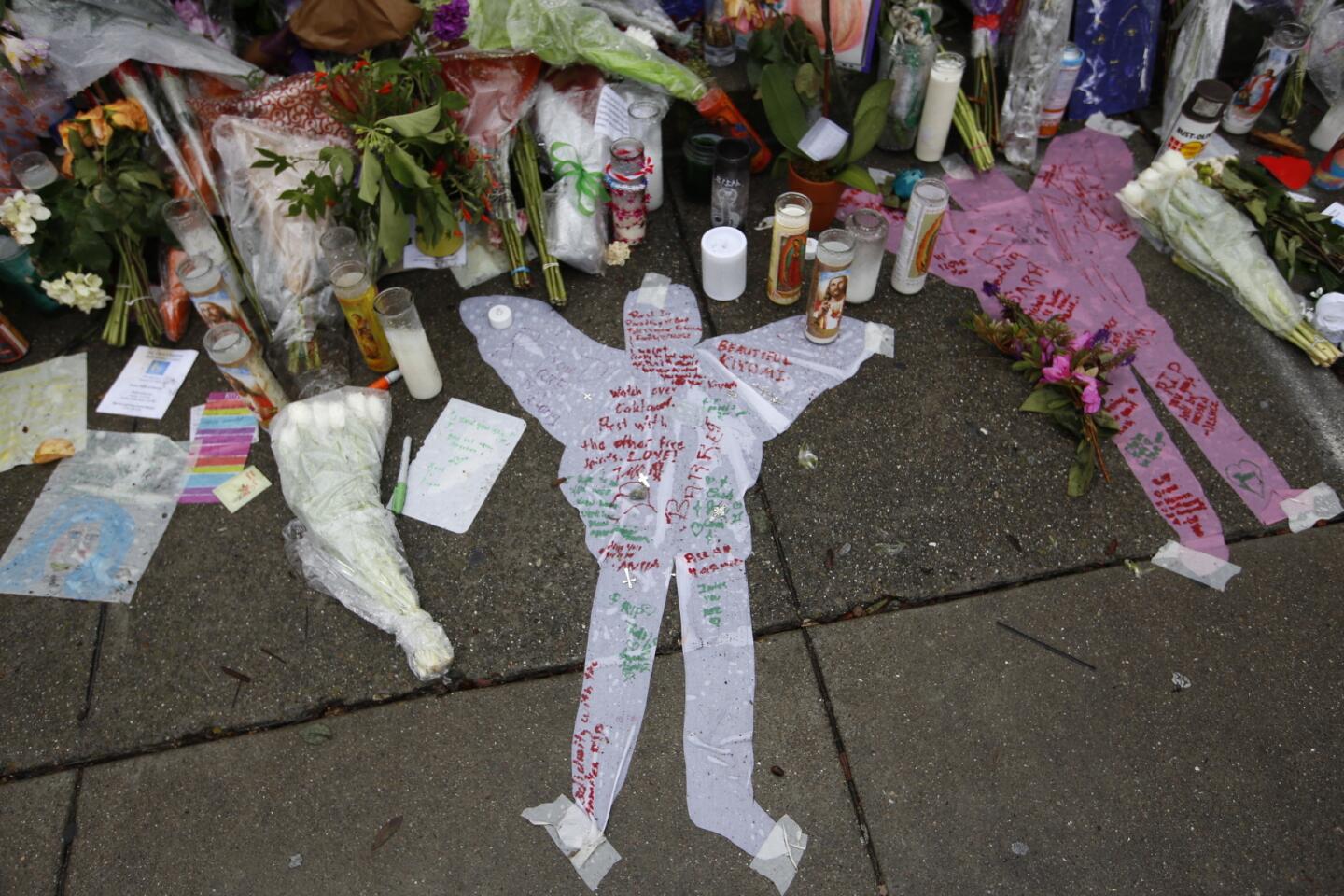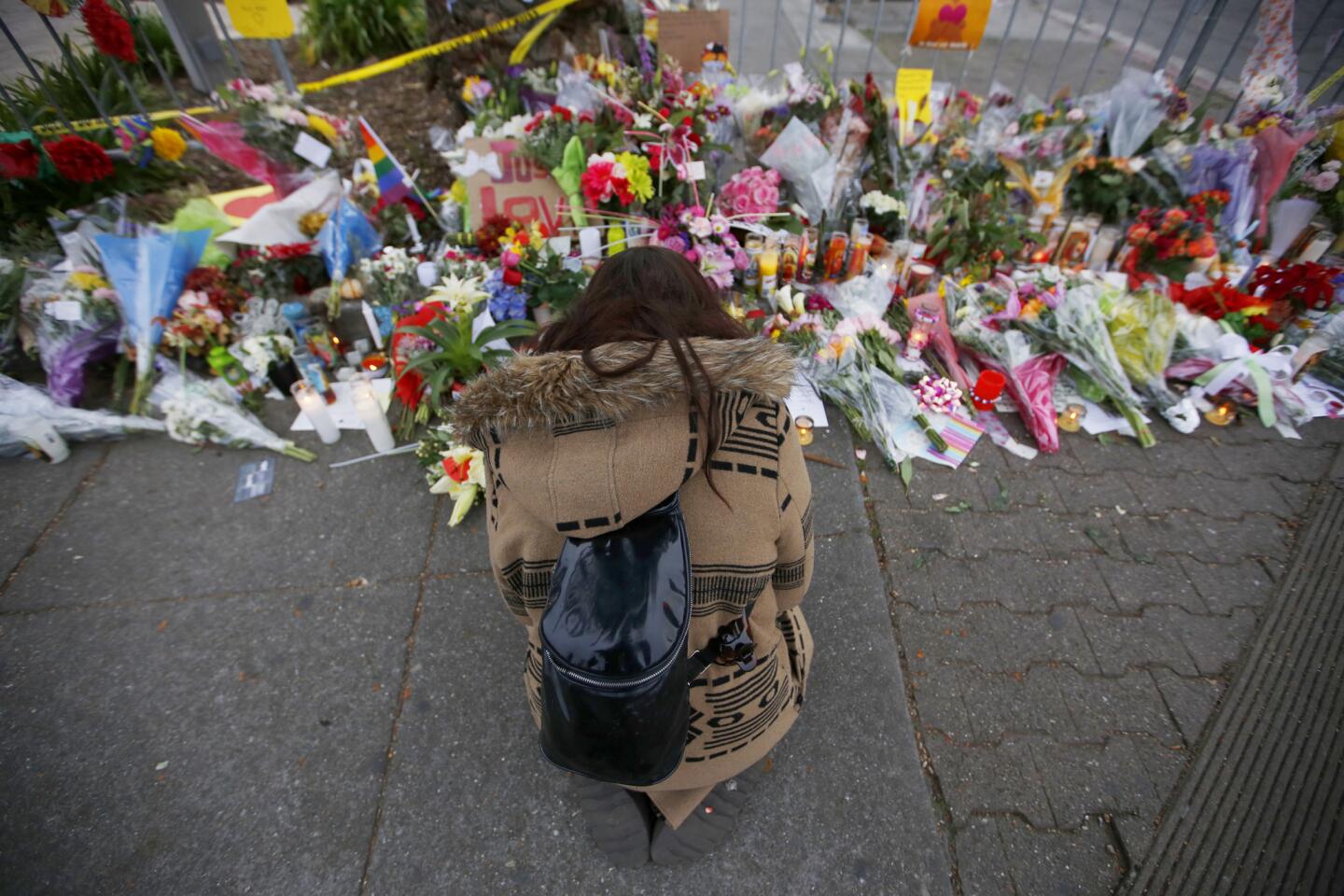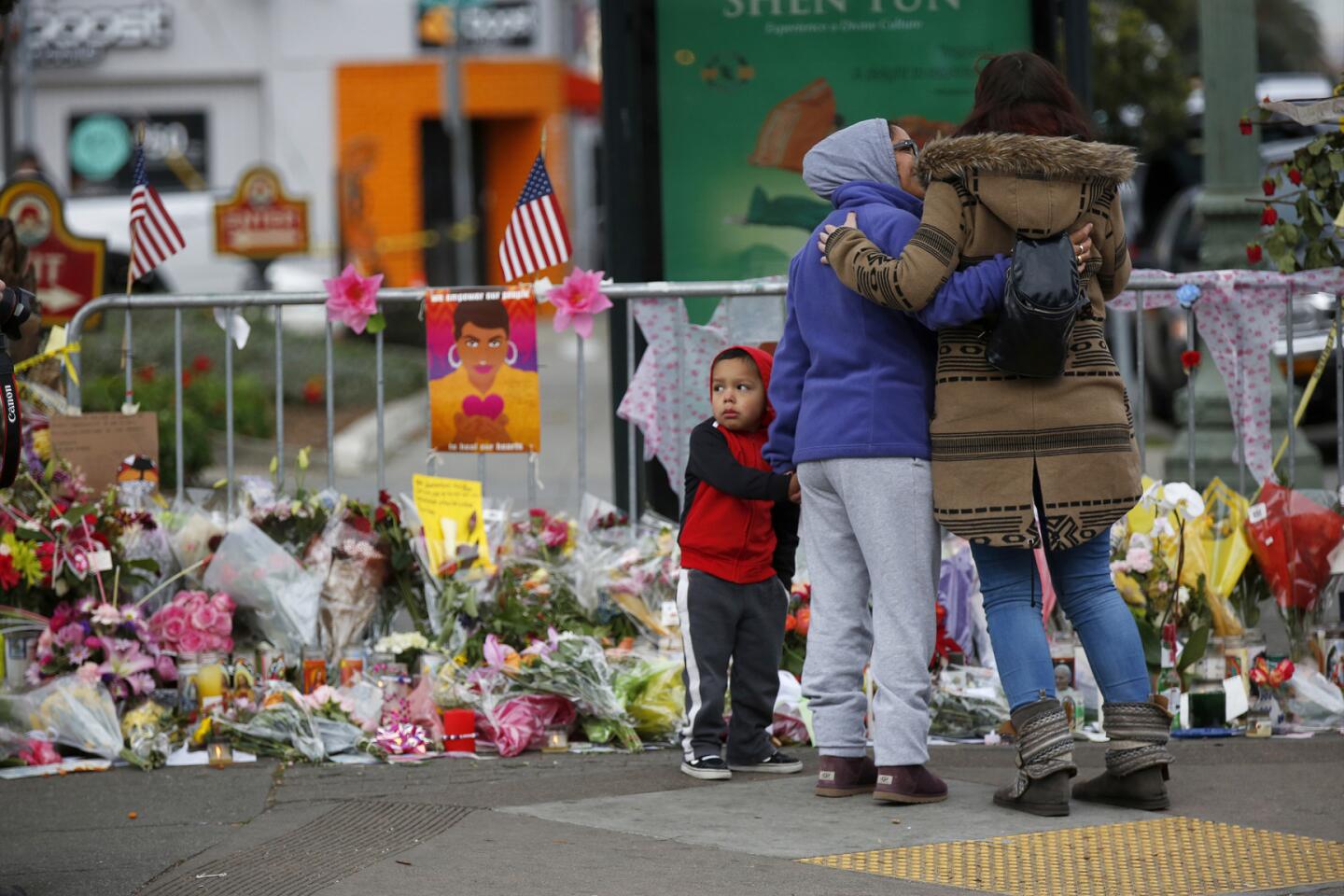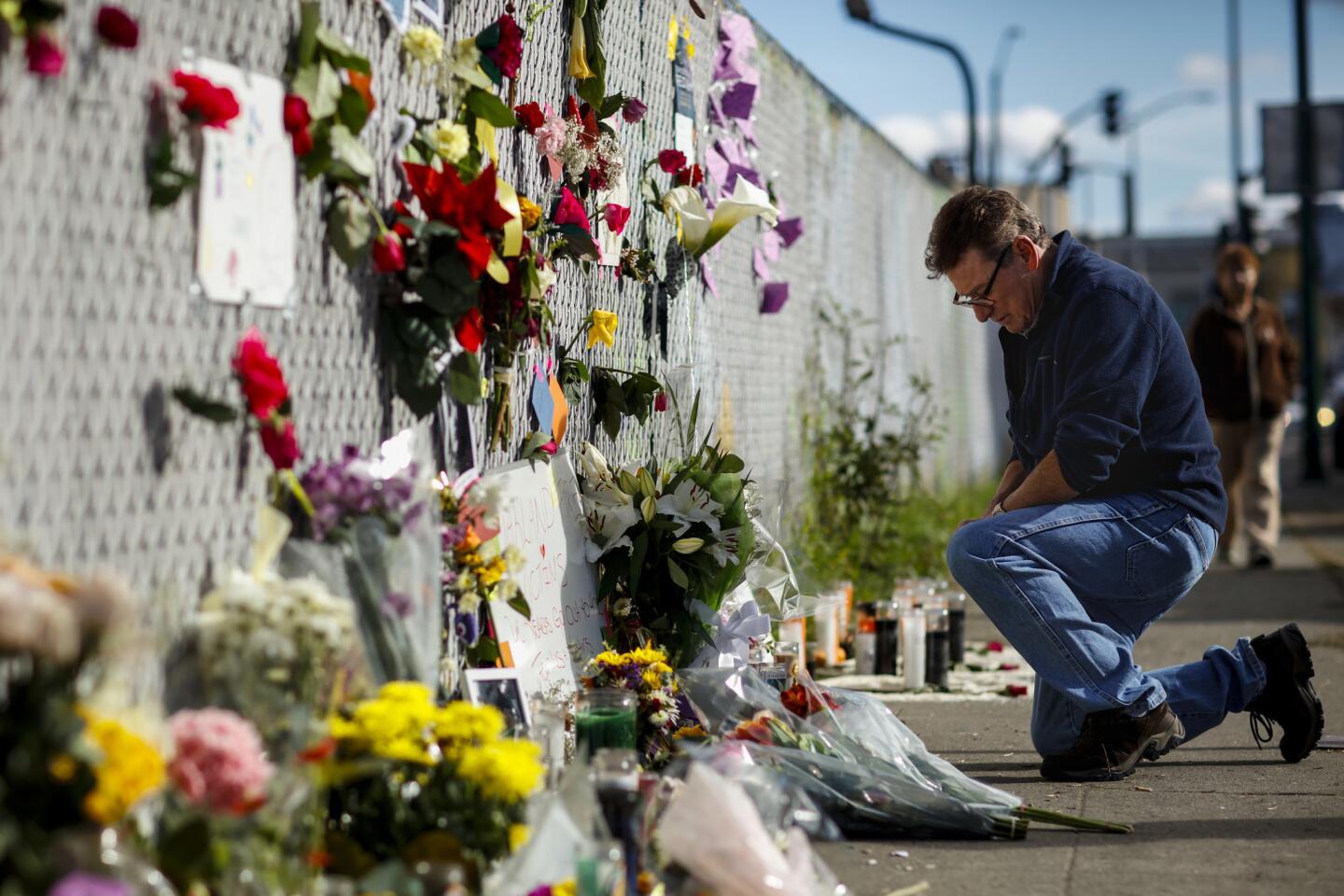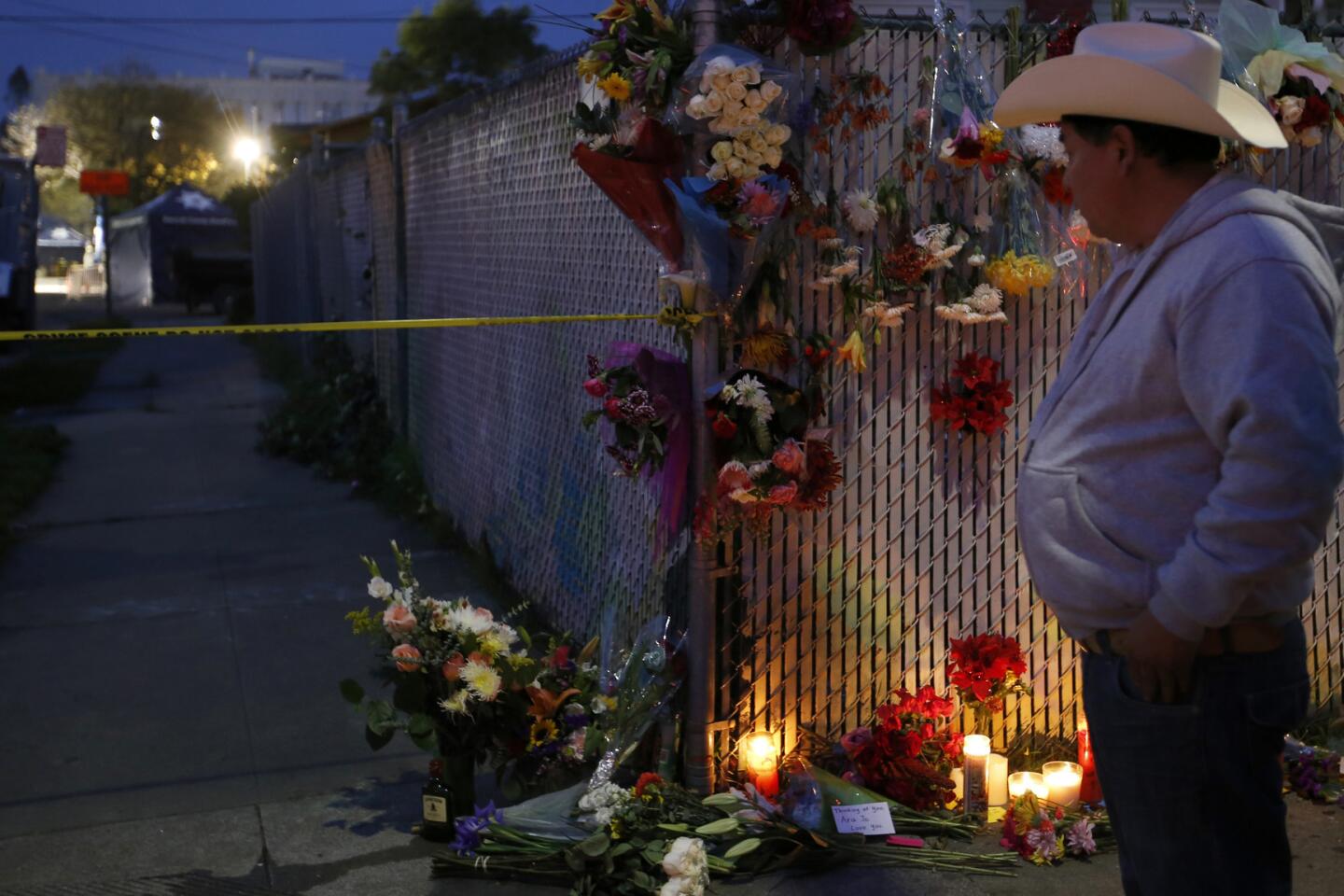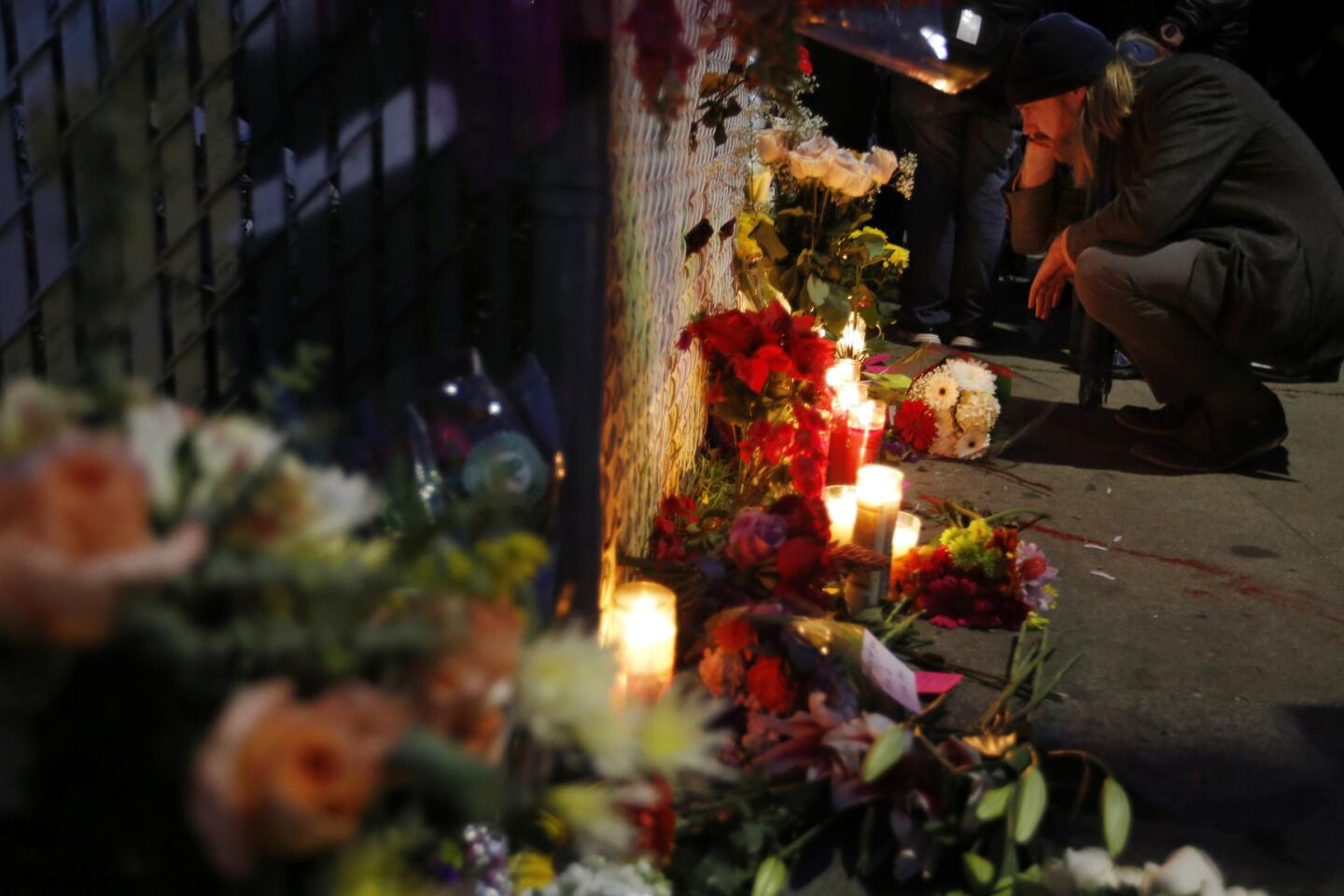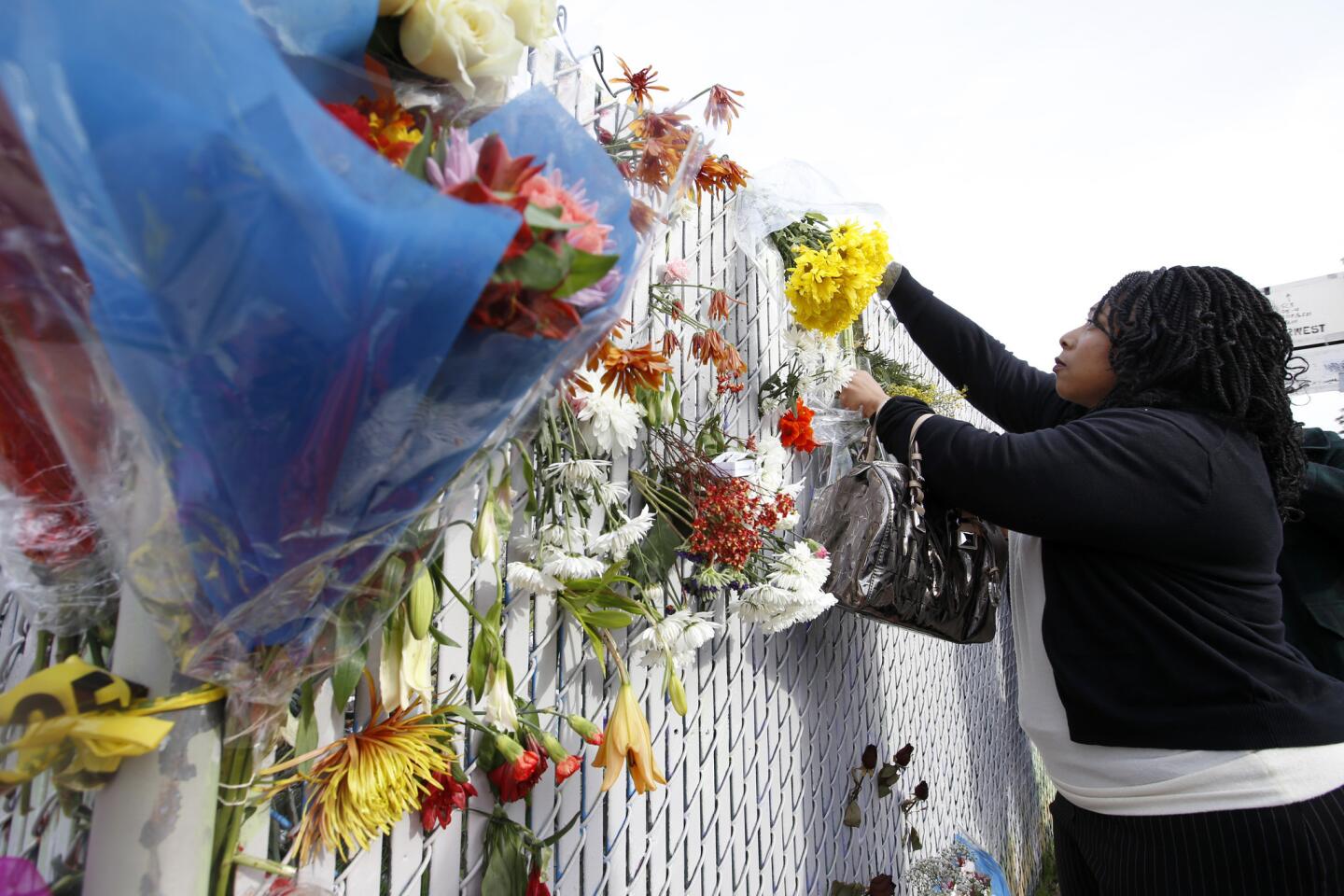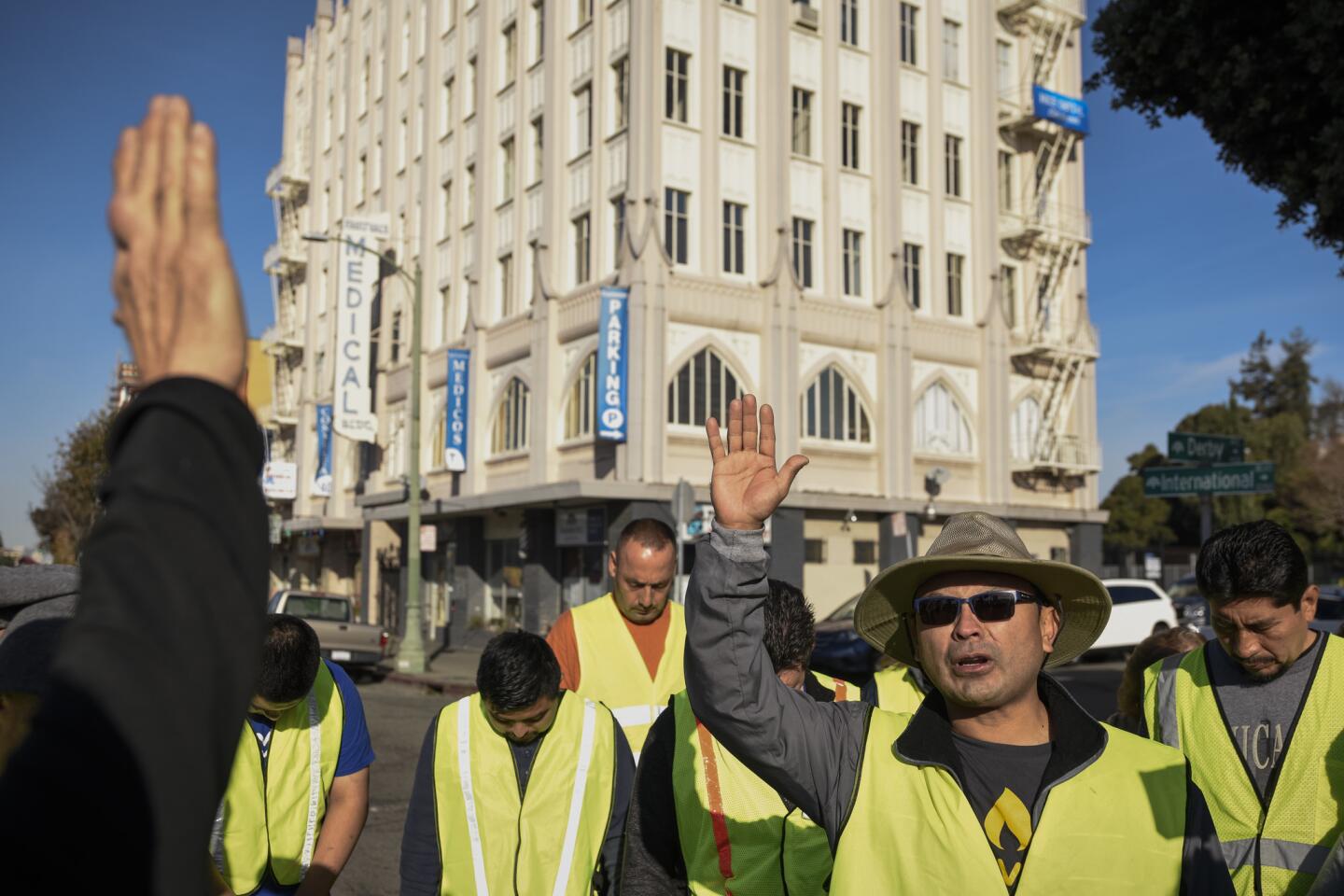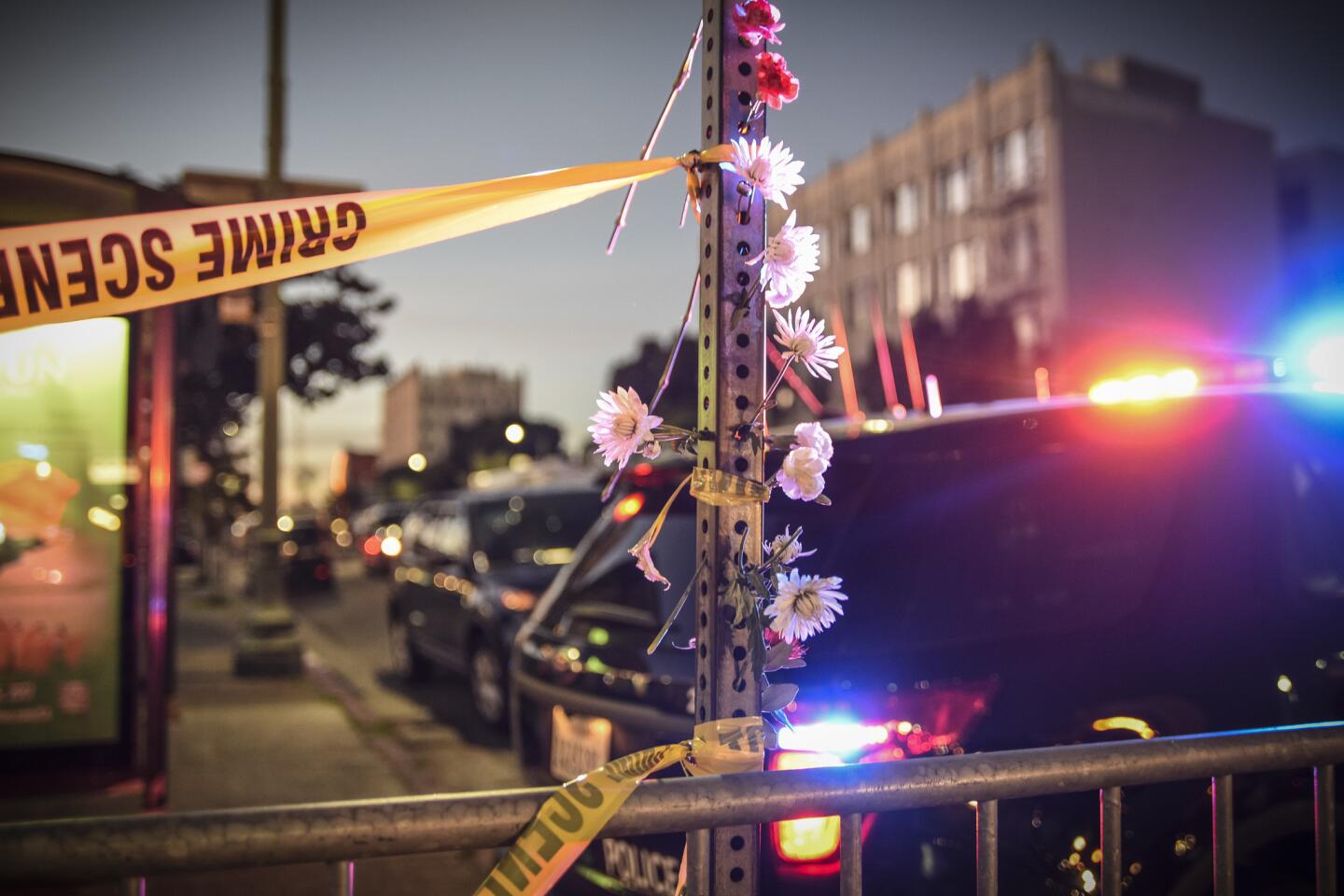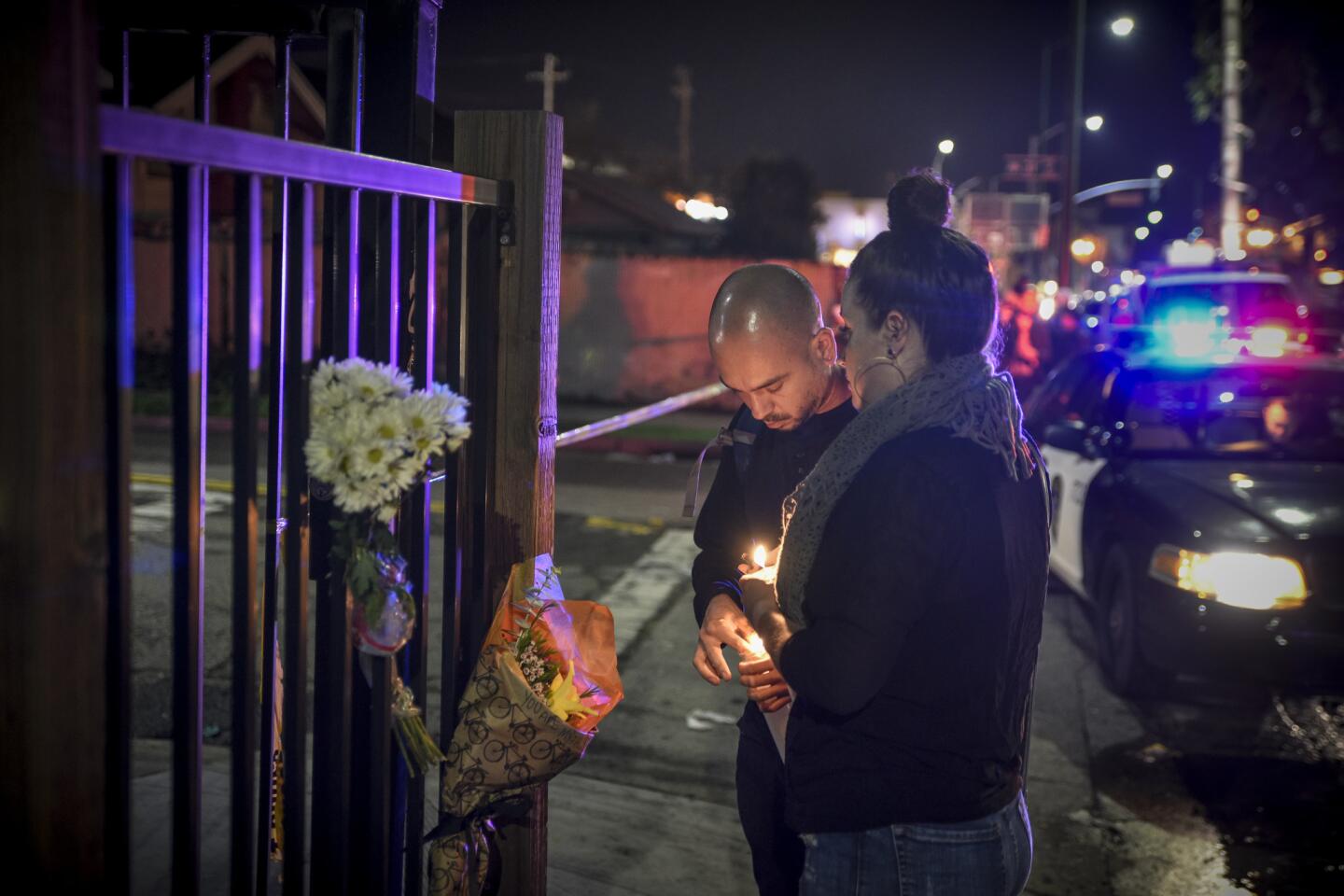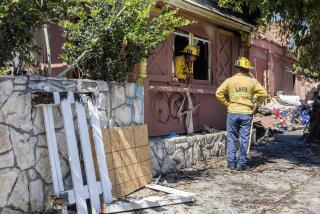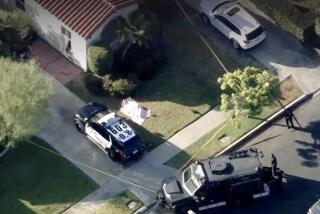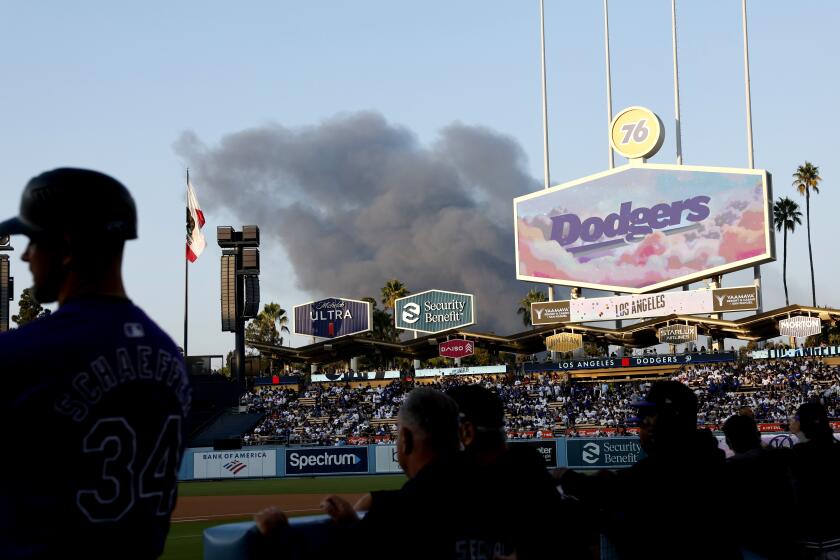Refrigerator ruled out as cause of Oakland fire that killed 36; no evidence of arson
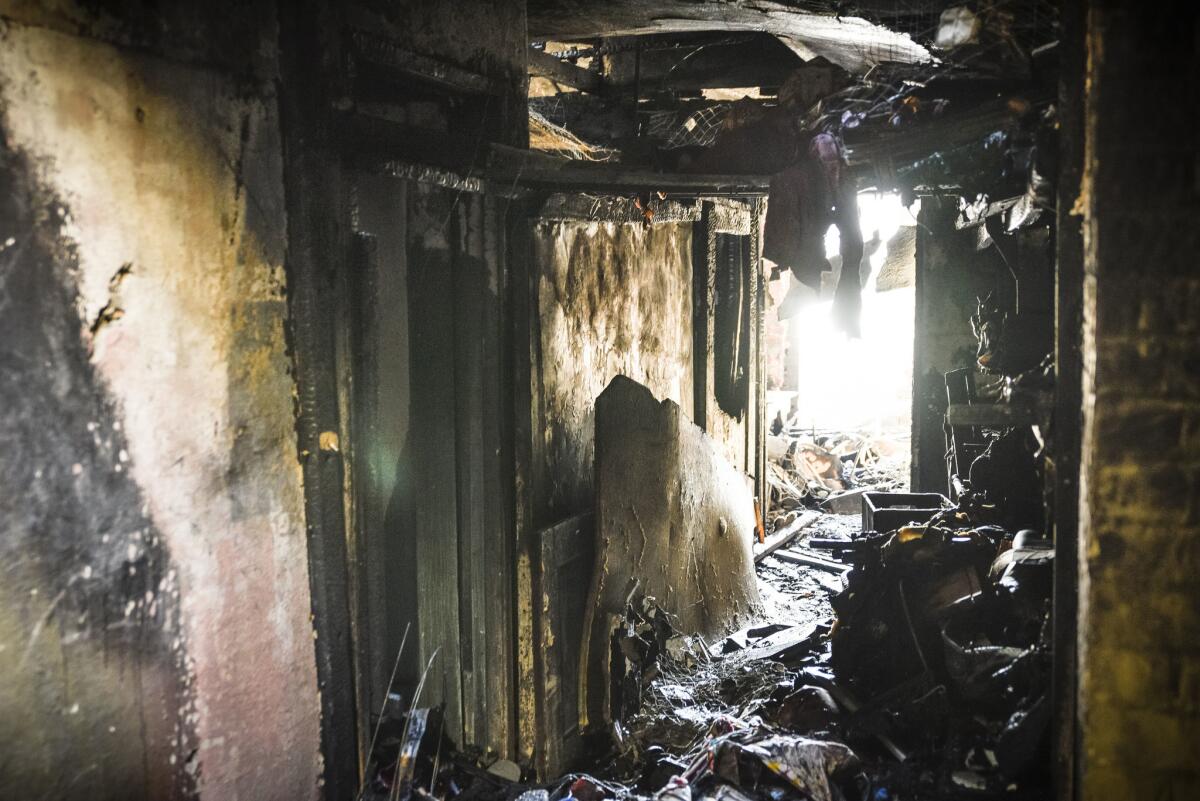
Investigators have ruled out a faulty refrigerator as the cause of a fire that killed 36 people in an Oakland warehouse last week.
Earlier in the week, officials had said the refrigerator and other appliances were being examined as possible causes of the fire. But Jill Snyder, an ATF official, said Friday that electronics engineers had ruled out the refrigerator as a cause of the blaze.
The cause remains under investigation, but Snyder said it’s possible a definitive cause might never be known. She also said there was no evidence the blaze was intentionally set.
Earlier in the week, the Oakland fire chief acknowledged that she can’t say whether the warehouse was even in the department’s database.
“Right now, we are looking through our records,” Fire Chief Teresa Deloach Reed told CNN on Thursday. “I can’t tell you anything right now about that warehouse.”
Prior to the chief’s statement, a source in city government said Thursday that the 31st Avenue address was not listed in the fire department’s database of buildings requiring inspections. Thirty-six people died in the structure while attending an electronic dance party last weekend.
“I can’t answer how that warehouse slipped through the cracks and that it bypassed our system — or how it bypassed the city’s system,” Reed told the news network. “But everybody is at the table right now trying to figure out what happened.”
The city’s Fire Prevention Bureau, led by Reed, is required to conduct annual inspections of all commercial buildings and multifamily residences, according to city ordinance. Officials have yet to release any fire inspection reports regarding the warehouse.
On Wednesday, city officials revealed no building code enforcement inspector had been inside the warehouse in at least 30 years.
Oakland Mayor Libby Schaaf promised this week to strengthen the city’s building and fire inspection programs. She also vowed to crack down on code violations but said the city would not conduct “witch hunts” against its employees or agencies responsible for investigating building and safety complaints.
The city’s Planning and Building Department investigated at least three of the complaints at the warehouse over the past three years. The complaints appear to assert that structures had been built inside without permits or that the property was being used as a residence. Most of the other complaints cited illegal parking and mounds of debris piled up on the sidewalk and in an adjoining vacant lot.
A building code inspector visited the warehouse 15 days before the fire to investigate complaints of trash and debris piled outside and an “illegal interior building structure.”
But the inspector was unable to get inside, triggering questions about whether a more aggressive investigation would have identified the multiple building code violations inside the structure and possibly prevented the tragedy.
FULL COVERAGE: Deadly Oakland warehouse fire »
The Ghost Ship warehouse was owned by Oakland resident Chor N. Ng’s trust and zoned exclusively for commercial use. But former residents and people who visited the building have said the warehouse housed an artists collective and unpermitted living quarters inside, and hosted concerts and other events.
The deadly fire appears to have triggered a surge of warehouse inspections by Oakland code enforcers — a development that has caused concern among many Bay Area artists, who say rising housing costs are driving them out of the region.
Oakland resident Jimi Woodliff said he runs into artists frequently through his work at a marijuana dispensary, and understands the predicament.
“Obviously the city could totally kick people out,” the 30-year-old said. “But it’s not just people’s work studios, it’s their home. … They don’t make a lot of money. They’re called starving artists for a reason.”
On Thursday, the Oakland City Council approved an emergency declaration to help fund response and recovery efforts. City workers already have begun assisting businesses affected by the fire.
Artists who worked inside the warehouse also may be eligible to receive federal loans from the U.S. Small Business Administration.
For breaking news in California, follow @VeronicaRochaLA on Twitter.
ALSO
Victims of the Oakland warehouse fire: Who they were
Did Oakland do enough to address the many warehouse danger complaints?
‘It’s excruciating’: Inside the heartbreaking recovery of 36 bodies in Oakland warehouse
UPDATES:
2:40 p.m.: This article was updated with ATF comments on the investigation.
This article was originally published at 9:20 a.m.
More to Read
Sign up for Essential California
The most important California stories and recommendations in your inbox every morning.
You may occasionally receive promotional content from the Los Angeles Times.
